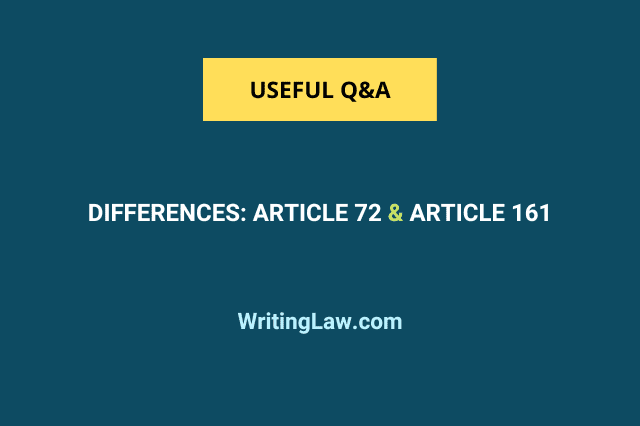
Article 72 of the Constitution of India provides pardoning power to the President of India. And, Article 161 bestows the same power to the Governor of the state. Pardon is an act of mercy or forgiveness. Although both the Articles provide pardoning powers, there are certain differences between them.
What Is Article 72?
Article 72 of the Indian Constitution empowers the President of India with the pardoning power. The power is exercised on the advice of the Council of Ministers. The Article provides these types of pardoning power to the President: Pardon, reprieve, remission, respite, commutation, and suspension.
Further, the President has the authority to exercise these powers if any person is convicted of an offence and the:
- Punishment or sentence is granted by Court Martial.
- Punishment or sentence is granted for violation of any law pertaining to the matter within the Union’s executive power.
- Punishment granted is the death sentence.
What Is Article 161?
The pardoning power of the Governor of the state is given under Article 161 of the Constitution of India. Like the pardoning power of the President, the Governor of the state also has six types of pardoning power: Pardon, respite, remission, reprieve, commutation, and suspension.
Further, he has the authority to exercise these powers only if any person has been sentenced or convicted of violating any law relating to a matter over which the state’s executive power extends.
Difference Between Article 72 and Article 161
| Article 72 | Article 161 |
|---|---|
| The President has the authority to grant pardons in cases where the sentence or punishment is imposed by a Court Martial. | The Governor’s pardoning power under Article 161 does not allow for this. |
| The President exercises his pardoning power in cases where the person has violated the union law. | The Governor exercises his pardoning power in cases where the person has violated the state law. |
| The President has the power to grant pardon in cases where a death sentence is imposed on the accused. | The Governor cannot grant pardons to death sentences. |
Read Next:
1. Powers of the President of India
2. What Are the Pardoning Powers of the Indian President
3. What Are the Discretionary Powers of the President of India
4. Pardoning Powers of the Governor With Latest Updates and Judgements
- Understanding the Legislative Branch of the Indian Government - 6th May 2024
- Appointment, Oath, and Removal of Constitutional Posts in India - 28th April 2024
- Powers of Income Tax Authorities in India - 26th April 2024







